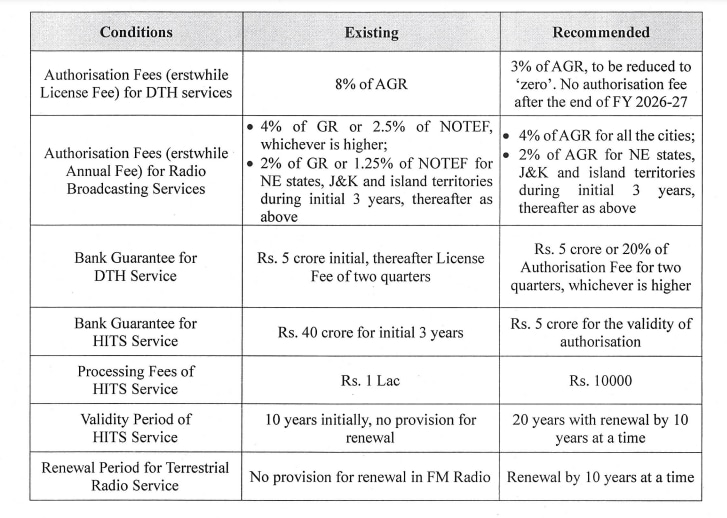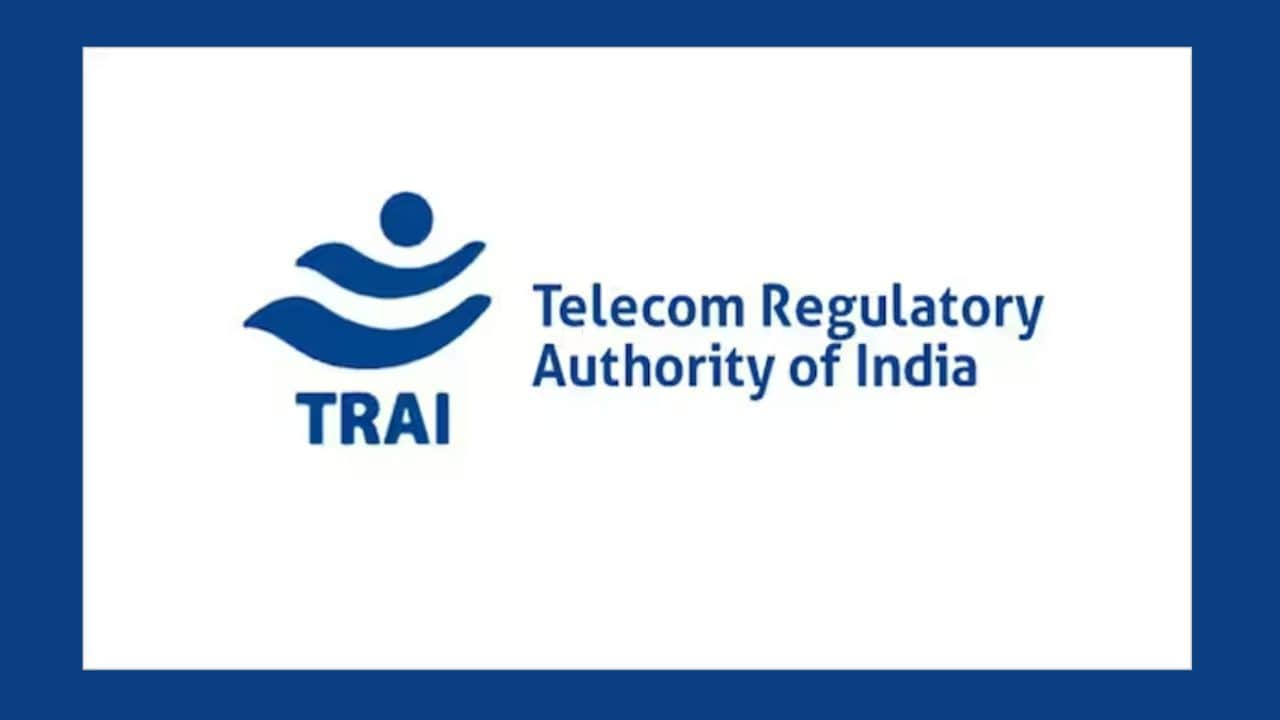Harmonising the terms and conditions across various service providers, the Telecom Regulatory Authority of India (TRAI) has released recommendations on ‘Framework for Service Authorisations for provision of Broadcasting Services under the Telecommunications Act, 2023’, on February 21.
Recommendations include the Ministry of Information and Broadcasting prescribing separate Programme Code and Advertisement Code for radio broadcasting service providers. Infrastructure sharing, on voluntary basis, among broadcasting service providers as well as with the telecom service providers/infrastructure providers, wherever technically and commercially feasible, has also been recommended.
The recommended authorisation framework provides for two distinct sets of terms and conditions, the first set, for the applicant entity intending to obtain authorisation for broadcasting services; and the second set, to comply with by the authorised entity for service provisioning during the period of authorisation.
The recommended authorisations for broadcasting services include those for Television Channel Broadcasting (Satellite-based/Ground-based), News Agency for Television Channel(s),Teleport/Teleport Hub, Uplinking of Live event/news/footage by Foreign Channel/News Agency, Direct to Home (DTH) Service, Head End in the Sky (HITS) Service, Terrestrial Radio Service, Community Radio Stations and Low Power Small Range Radio Service.
MIB, through its letter on July 25, 2024, sought recommendations of TRAI under Section 11(1)(a) of TRAI Act, 1997 on the terms and conditions, including fees or charges; for authorisation to provide broadcasting services, aligning it to the Telecommunications Act, 2023 and harmonising the terms and conditions across various service providers.
Following the same, the Authority initiated a consultation process by releasing a consultation paper on October 30, 2024 and sought stakeholder’s comments. In response, the comments and counter comments received from the stakeholders were uploaded on TRAI’s website and an open house discussion (OHD) was held on December 18, 2024.
During the open house discussion, Storyboard18 earlier reported that the Indian Broadcasting and Digital Foundation (IBDF) argued that the proposed authorisation framework exceeds TRAI’s jurisdiction by attempting to regulate content through licensing conditions.
Stakeholders, including the Indian Broadcasting and Digital Foundation (IDBF), News Broadcasters and Digital Association (NBDA), and the Federation of Indian Chambers of Commerce and Industry (FICCI), had strongly opposed TRAI’s recommendation to bring broadcasting services under the authorisation regime of the Telecommunications Act, 2023 and urged that it should be restricted to the carriage-related aspects of broadcasting.
As per the now released recommendations, the terms and conditions including fees and charges for various broadcasting services, particularly in the ‘Television Channel Distribution Services’, are as under:

In addition, harmonisation of common terms and conditions, roll out obligations for similar services (DTH and HITS), provisions enabling infrastructure sharing, provisions applicable in case of emergency/disaster, monitoring and inspection, contravention of rules, applicable Program Code and Advertisement Code for
television broadcasting /distribution services and that for all Radio broadcasting services has been recommended.
As per the extant guidelines for various broadcasting services, licenses/permissions registrations are issued by the Ministry of Information and Broadcasting (MIB) under Section 4 of the Indian Telegraph Act, 1885 for provision of broadcasting services, like, television channel uplinking/downlinking (including Teleport), SNG/DSNG, DTH, HITS, IPTV, FM Radio, and Community Radio Stations (CRS).
Salient points of the recommendations include:
– Broadcasting service authorisations shall be granted under Section 3(1)(a) of theTelecommunications Act, 2023, in place of the extant practice of issuing license/permission under Section 4 of the Indian Telegraph Act, 1885. Terms and conditions for service authorisations shall be notified as Rules under Section 56 of the Telecommunications Act, 2023.
– Grant of service authorisation under Section 3(1)(a) should be in the form of an authorisation document containing essential details pertaining to the service. The format of the authorisation document has been recommended.
– The terms and conditions for ‘Grant of Service Authorisations’ have been harmonised for similar services and covers eligibility criteria, application process and other relevant details/information required by an applicant entity before applying for service authorisation.
– Migration of existing licensee/permission holder to new authorisation regime shall be voluntary, till the expiry of their license/permission. Further, no processing fee or entry fee will be required for migration, in case of broadcasting services.
However, the validity period of the respective service authorisation should be from the effective date of migration to the authorisation regime, irrespective of the validity period of existing license/permission.
– Addition of new services, namely, ‘Ground-based Broadcasting of a Television Channel’ and ‘Low Power Small Range Radio Service’, based on earlier recommendations of the Authority.
– The terms and conditions for service provisioning encompasses two parts, namely, ‘Common Terms and Conditions’ applicable to all broadcasting service authorisations in a harmonised manner and ‘Specific Terms and Conditions’ applicable to service specific authorisations.
– To protect the interests of service providers, it has been recommended that amendments to terms and conditions of service authorisations (except for reasons of National Security) shall require TRAI’s recommendations.
– Mandatory co-location should be removed for authorised entities of Radio Broadcasting Services.
– Infrastructure sharing, on voluntary basis, among broadcasting service providers as well as with the telecom service providers/infrastructure providers, wherever technically and commercially feasible, has been recommended.
– Authorised entities of ‘Television Channel Distribution Services’ shall endeavour to adopt interoperable STBs to enhance consumer choice and reduce electronic waste.
– TEC to prepare and notify standards for interoperable STBs and television sets with inbuilt STB functionality.
– The minimum net worth requirement of Rs. 100 crore for the Internet Service Providers to provide IPTV Service is recommended to be removed and the same should be aligned with the provisions contained in the authorisation for Internet Services to be issued by DoT.
– Terms and conditions for Radio Broadcasting Service have been made technology agnostic enabling adoption of digital technology. Service authorisation for ‘Terrestrial Radio Service’ to be delinked from frequency assignment and the auction of spectrum for frequency assignment for Terrestrial Radio Service shall be done separately.
– In addition to broadcasting of radio channel(s), the authorised entities for Terrestrial Radio Service should be allowed streaming the same content through internet concurrently without any user control.
– MIB should prescribe separate Programme Code and Advertisement Code for radio broadcasting service providers.
